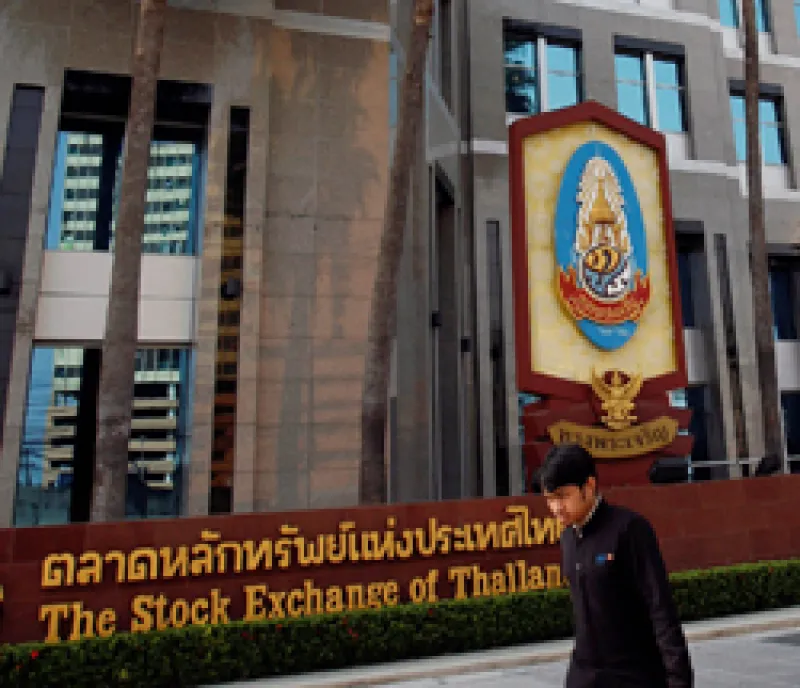
A pedestrian walks past the Stock Exchange of Thailand (SET) headquarters in Bangkok, Thailand, on Monday, Feb. 14, 2011. The Stock Exchange of Thailand, operator of the nation's bourse, postponed a plan to sell shares to the public until 2013 because of a delay in the completion of new legislation, President Charamporn Jotikasthira said. Photographer: Dario Pignatelli/Bloomberg
Dario Pignatelli/Bloomberg

